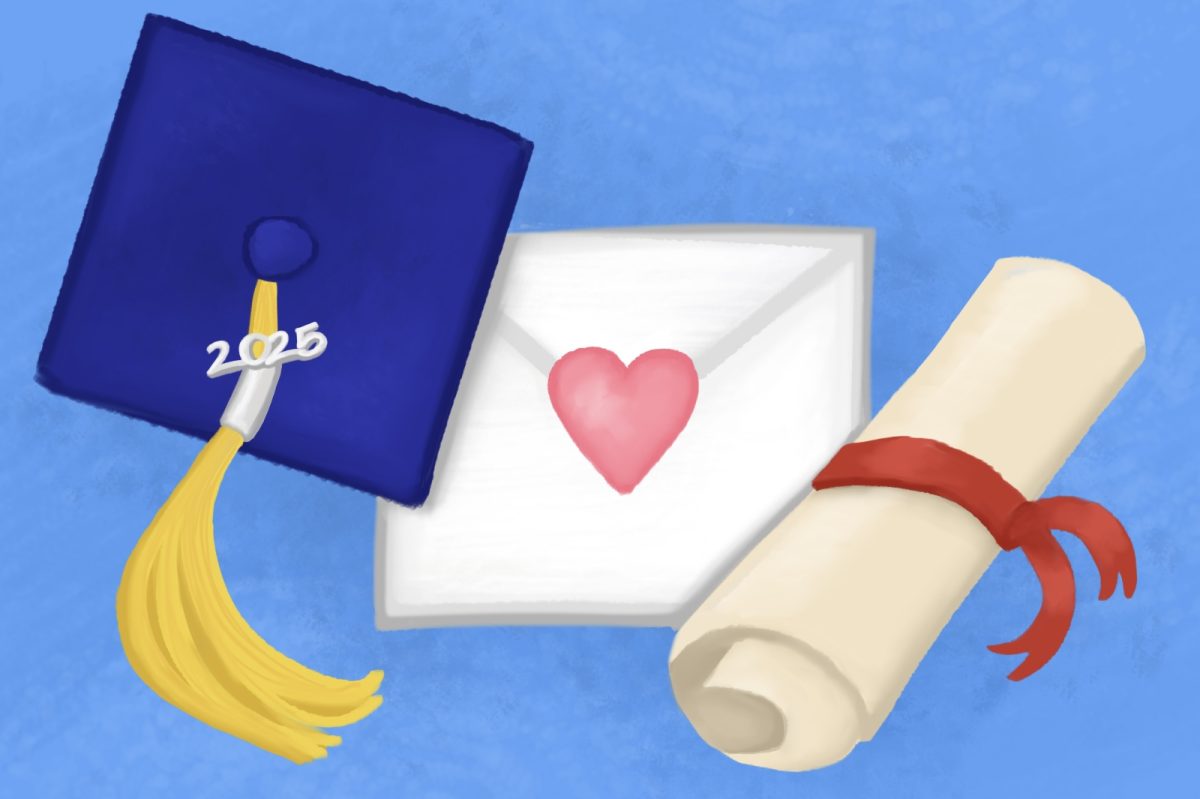By Lucia Geng
As long as schools have been around, the practice of awarding the titles of valedictorian and salutatorian has as well. It’s only natural: after all, our best and brightest deserve recognition and honors. However, in the environment of South High, awarding the titles of valedictorian and salutatorian does more harm than good, and as such, the practice should be done away with.
Let me explain. Valedictorians and salutatorians are, in theory, those at the top of their class. They are named to represent the potential and achievements of their class as a whole; thus, they should be those who have the most potential and the most achievements. There’s just one problem with recognizing those with the highest grades: they don’t necessarily have the most potential or the best achievements.
You see, grades are but one aspect of an individual’s life. The student who studies and does very little else, the student who is capable of taking APs but chooses to take regular classes to do better on tests, and the student who cheats to do well are all examples of students who earn high grades. All of these students are valedictorian material, potential recipients of the highest honor the school can give them.
How can this be possible? It’s not supposed to be. School is school, not a competition, not a game: there can be no first-place finisher. And naming valedictorians sends the message that there is one.
Even if education and grades were a game, the rules of such a game would be unfair: the standards of grade-giving in this school are not uniform. One teacher’s standards for an “A” may be identical to another teacher’s expectations for a student who earns a “B.” The earning of grades is not wholly within students’ control; it is influenced by the teachers they are assigned to in the beginning of each year. In addition, not all students take the same classes. How can you compare one student’s achievement in Fashion Marketing to another’s in AP Studio Art to another’s in Orchestra?
And even if all students did take the same classes, validation for grades is a dangerous thing—by adding more extrinsic motivation for learning, one’s intrinsic motivation is dampened, for it pales so very small in comparison. Achievement in education should not be and does not need to be rewarded; rewards will come in other forms later on in life.
Of course, valedictorians are named not only to represent the brightest minds of a class but also to deliver an unforgettable speech at graduation. Yet naming valedictorians is a poor way to determine who ought to give such a speech. Those with the highest grades are not necessarily the best writers or speakers. They might not even want to give a graduation speech and may be pressured into doing so by teachers and other adults. Not naming a valedictorian and salutatorian would free up extra time during graduation for a student who genuinely wants to speak and make for a more exciting graduation ceremony.
Doing away with naming valedictorians would also improve the environment at South by easing unnecessary stress. The fact that students already at the top have the potential to become valedictorian clouds their persepective; any small dip in a grade is not just a small dip, it is a huge step away from valedictorian status. The already stiff competition is exacerbated by the fact that scoring a couple of points lower on a test than your classmate can prevent you from obtaining top dog status. There’s also the fact that naming valedictorians discourages collaboration. Doing away with naming valedictorians would send the message to you that it’s okay not to be the best, and to your friend that it’s okay to help.
South would certainly not be alone if it were to do away with naming vals and sals. Southampton High School in Suffolk County, which holds an A+ rating from the school ranking website Niche.com, has recently done away with the practice. And recently, the phenomenally ranked Jericho High School decided to recognize a whopping seven top students as “valedictorians,” instead of the traditional one student.
Instead of continuing to name valedictorians, I propose we elevate the importance of some already existing awards. Currently, the award given to students from the Board of Education for contributing to the quality of life at school is passed over by many, dismissed as just another award. But what if we could make awards like this more prestigious and establish South’s reputation as a school that truly promotes learning over grade-getting? What if we could institute awards for love of learning or growth of character, and make those the most prestigious awards in our system, the awards that all students should aspire to?
When you bestow the title of valedictorian or salutatorian upon someone, you don’t reward a person that loves learning; you reward a person that loves good grades. And doesn’t that go against what school is all about?
As long as valedictorians and salutatorians keep on being named, teachers cannot meaningfully say things like “Don’t worry, you are more than your number; your love of learning is what counts!” As long as valedictorians and salutatorians keep on being named, parents cannot tell their children that they will not be ranked by their grade point average. And as long as valedictorians and salutatorians keep on being named, schools will not reach their full potential to educate, enrich, and ultimately, change lives.








